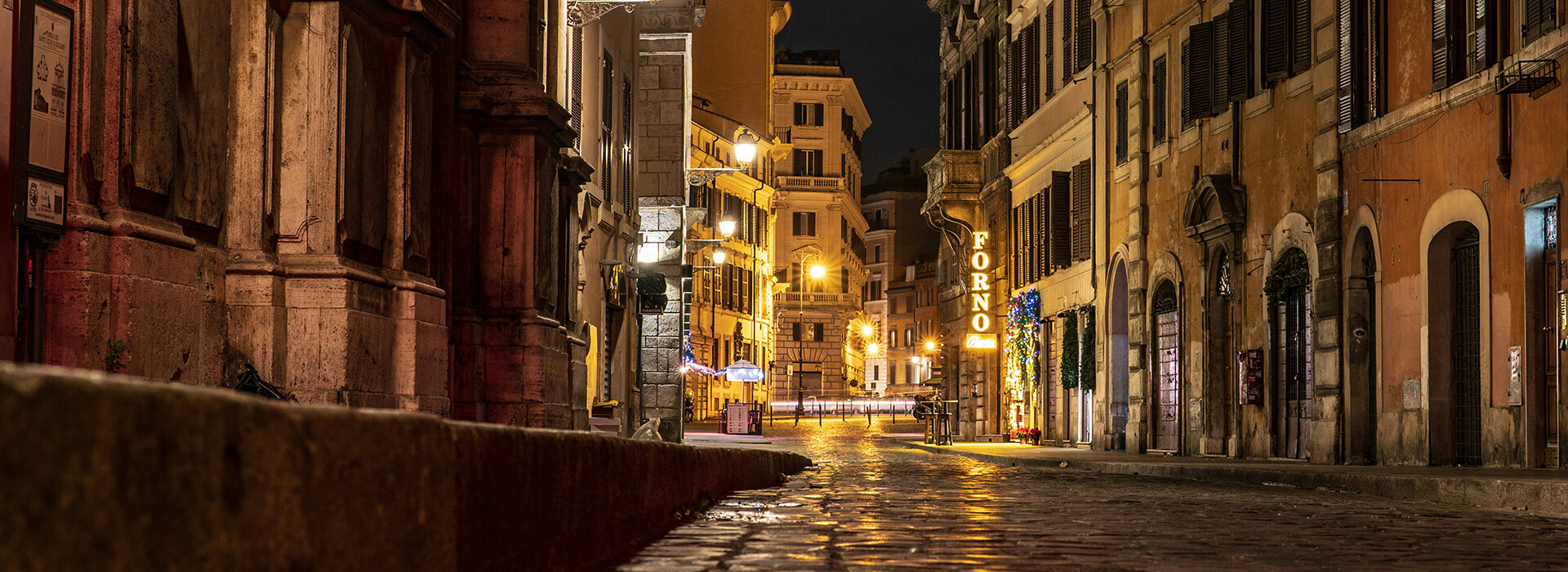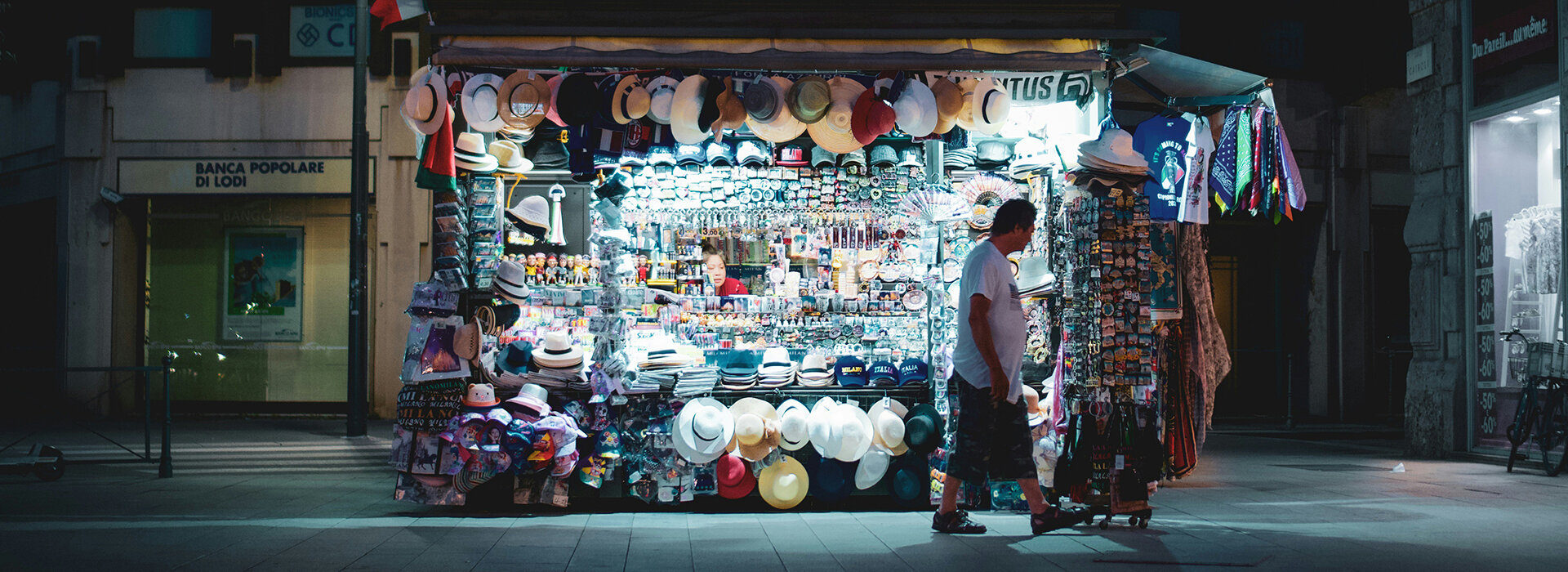Lost in Naples: Lessons I've learned from putting my trust in strangers
I had been dreaming of Italy for years. Countless Italian phrases scrawled in black pen filled my journal. Buongiorno! Buon divertimento! A creased green Italian-English dictionary and a large wrinkled Italian picture book lay piled on my bedside table.
My friends consistently rolled their eyes every time we were out and I’d exclaim, “I think they’re speaking Italian!” or, “It’s made in Italy!” I even went out with a chef from the Italian restaurant a few doors down from where I worked. Every day, I’d pass by and peer through the large white-paned windows partially covered with hanging pink flowers and see a man with an apron look up from the counter and wave. Eventually, he came running out asking to hang out sometime. Next thing you know he brought oven-fired pizza to my house. It didn’t work out with the pizza chef but my love for Italy did. Last summer when I was 19, I finally got the chance to visit. After years of pining for Italy, I set off to explore on my own for three weeks.
Despite Rome being majestic and Sicily being a complete dream, Naples is the city I can remember with every one of my senses.
I landed in Rome and went through Naples before entering Sicily. Despite Rome being majestic and Sicily being a complete dream, Naples is the city I can remember with every one of my senses. Naples brings you in. You’re not a tourist watching the city from the outside. Rather, you become a part of it. In Naples, I see the women hanging white sheets outside their apartments and passionate crowds watching soccer on TV in yellow-lit living rooms through their windows. I feel the hot breeze as motorbikes pass mere inches beside me, I hear the singing of the old man in the cobblestone square, and I smell the ocean, tobacco and pizza. I drag my bags through the never-ending slim cobbled streets. I walk through blue and yellow tiled walls that hold a green garden that shimmers from the heat.
I’m caught up in the romance of Naples, its beauty, its charm, and its culture. And then on my second night, my bubble bursts. I’m an Aperol spritz (or two) deep and walking through winding streets back to my hostel. My phone is dead and my sense of direction is… admittedly bad. Still, I had been to the same bar the night before and believed I knew how to walk back to my hostel. But now, I have to face the facts: I’m lost. I have no ability to use Google Maps and the streets which fascinated me before are now feeling hopelessly foreign. I’m feeling nervous and vulnerable as I continue to try to find my way in the dark. It has been an hour and tears are now streaming down my face. With each minute that passes, I’m feeling more and more worried. “How did I let myself get into this situation!?” I think to myself. The once-bustling city has grown quieter as I walk, with only the occasional laughter echoing from a building or a car screeching down the empty streets to interrupt my thoughts. “It must be just around this corner,” I think to myself. But I’m not sure. “Or I could be going in the complete wrong direction.”

Then, in the dark, a faint light becomes visible. It’s a small cigarette and snack stand with three people sitting in plastic chairs just outside of it. Still crying, I approach and with my (very) limited Italian, I try to explain that I’m lost and need to get to Napoli Centrale, the train station next to my hostel. Their eyebrows furrow and their eyes look blank as they look at one another trying to comprehend what I’m asking for. After a teary conversation and an unsuccessful attempt to get an iPhone charger, the older man slowly takes my hand and begins walking.
I try to explain that I’m lost and need to get to Napoli Centrale. Their eyebrows furrow and their eyes look blank as they look at one another trying to comprehend what I’m asking for.
We walk up wide stone staircases that reach yet more dark alleyways and cigarette-littered corners. We pass closed-up shops and blue and red graffiti-covered walls. Eventually, we reach a street with a familiar fluorescently-lit corner store, with the usual three men leaning on their motorbikes with smoke floating up from their mouths. We have reached my hostel, and my eyes are drying. I point to the large brown building and nod. He lets go of my hand and walks away but not before gently kissing me on the forehead.
I don’t know this man. I don't know where he lives or what he does and I can barely remember his face. I do remember him kindly looking into my eyes as he faced me before departing. I do remember trying to thank him by returning his bright eyes that seemed to speak when they searched my face with concern.
Safe in my hostel, I get into my top bunk and fall asleep. In the morning I wake to meet and befriend two German brothers. We have a memorable night drinking one-euro Aperol spritz and rolling cigarettes that pass between different lips but it’s not as impactful as the one the day before. My attachment to Naples, I’ve come to realize, is partially related to that encounter with that kind stranger in the middle of the night.

I have never again walked home alone with a dead phone. Instead, I learned to lean into the natural companionship shared between locals and fellow travellers who stay together at the same hostels. In Sicily, I walked at 3:00 a.m. with fellow backpackers staying in my hostel. I biked with a hostel worker through the pot-holed city and past the blue sparkling ocean glimmering in the sunshine and they stayed on the car side of the road the entire time. I drove with an Italian soon-to-be doctor who’d lived in Sicily since childhood and he dropped me directly in front of my place. I continued to put trust in the people I met and I'm glad I did.
In the absence of common language or culture, one thing prevailed: the kindness of people.
Yet, I acknowledge my mistakes. Knowing enough Italian to communicate in Italy is necessary—for my safety and for the respect for the country I’m visiting. I’ll always have a charged phone or readable map to navigate myself. I’ll never again be worried about asking someone to walk me or help me with directions: there is value in trusting others.
However, trusting others, especially strangers, isn’t always simple. In my situation, I had few options but I read their concerned facial expressions and gentle body movements—a universal language. In the absence of common language or culture, one thing prevailed: the kindness of people. I read them and was able to determine the level of trust I’d give them. I continuously observed my surroundings to orient myself and look out for other people around in case something went wrong.
When travelling alone I put my faith in the people driving the bus to my fellow bunkmates that come from around the world. I am at my most vulnerable yet I have also never felt so safe around strangers.

To the young woman who gently smiled and asked how my day was as she journalled quietly in her thin single bed to the hostel worker who folded my sweat-stained dresses for me and of course, to that man who walked me home. I thank them.
I felt ready to be strong and turn them away if I really had to. This time, I’m glad I didn’t.
Issue 5



